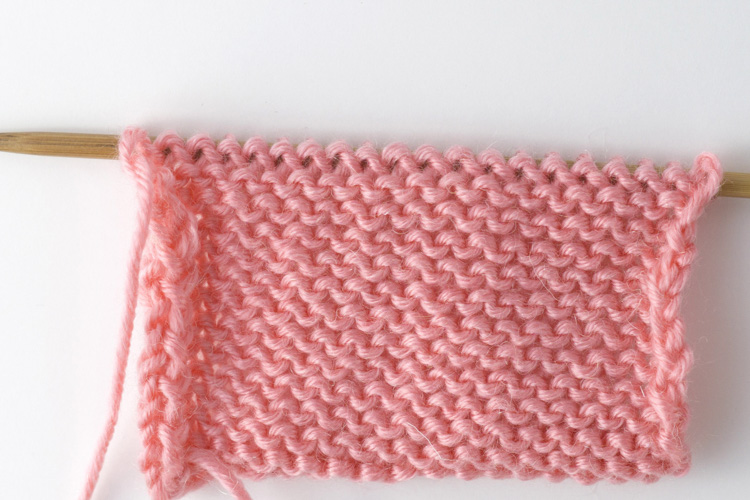
Sewing and crafts with fabric can be fun and rewarding. You need to be familiar with the basics of sewing and crafting before you can start. Fabric is the core of any sewing project. The right fabric can make or ruin a project. There are guides to help beginners choose the right kind of fabric for their project.
All sides of the cloth should have a 1/4" hem
To make the fabric more manageable before you begin sewing, press it. Once the fabric is pressed, thread your needle. Begin by threading your needle up through the top of the fabric and under it. Then pull the thread up and move your needle to the right about eight inches. When you reach the other end of the cloth, place the needle back towards the left. Continue sewing by making sure that the needle is under the fabric, and then out through the top layer.
Sewing a hem will give your cloth a finished edge. It will also prevent it from unraveling. There are two ways to hem a piece of fabric: a double-fold hem and a blind stitch hem. The most common type is the double-folded hem. No matter whether you are using a blind stitch or double-fold, ensure that there is a seam allowance equal to 5/8 inches.

Straight pins work well when sewing a folded edge to your fabric. Place the blunt end of your pin on the right-hand side of your fabric. The needle should be facing the edge. You can flip the fabric and iron the reverse side after you have finished sewing. If you want to see through the fabric underneath, you can fold your ironed section and leave an 1/8 inch wide fold.
Whipstitch can also be used to finish an edge of cloth. This stitch hides the edges and is simple to use. Begin by stitching along your hem. Next, bring the thread to the top of the fabric. Now, stitch the overlapping edge.
The BERNINA blind hem foot is unique. It is designed to capture folded fabric. It creates a slight slack so that the hem can be hung flat. It will also prevent tugging and puckers.
The 1/4" seam is a staple in patchwork. This type of seam is a common way to create a small hem. It can also be used for making purses and soft toys. Quilting cotton is also a good choice for this type of project.

A double fold hem can also be used. This hem gives a nice professional finish. This hem works best when your cloth edges are straight. Curved edges can cause a lot of puckering. Double fold hems will also require matching bobbins, which will show through the right side of the garment.
FAQ
What hobbies are popular right now?
Popularity isn't always a good thing. It can be used to justify mediocrity. The fact is that most people do not have time to pursue any hobby they want. They're too busy working to make ends met. What do you do with your spare time? You could start a business.
However, this isn't easy. It takes a lot of work to make your dream a reality.
Consider pursuing a hobby if your goal is to have something more fun than running a company.
Hobbies don't have to be creative. There are many hobbies. These include:
-
Gardening
-
Cooking
-
Photography
-
Reading
What are educational hobbies?
An educational hobby is an activity where you learn something by doing it. You could choose to learn how to play an instrument or play sports.
The key thing is that it should be fun and enjoyable for you. You don't necessarily have to do this all the time. But if it becomes boring, then think about what you could be doing.
These activities could end up costing you far more than what you pay for.
What are some competitive hobbies?
You can compete in running, swimming or cycling as well golfing or tennis.
They are usually enjoyed by people who enjoy being active, but also allow for social interaction.
If your hobby involves physical activity, you will likely find other people who share it.
You might consider joining a group or club that meets regularly to play together in sports.
You can also participate in team games where you play alongside others.
These include netball (soccer), football (cricket), netball (basketball), hockey, baseball, volleyball and badminton.
There are many types of competition.
Some competitions may be held for pure recreational purposes.
Others are designed to test the skill of competitors.
Others are also designed to reward exceptional performance.
The winners are awarded prizes in these cases.
Other competitions are designed to test the strength and stamina of competitors.
These are called endurance events.
For example, marathon races, triathlons, Ironman Triathlon, etc.
Athletes often train hard before competing in these events.
They will be required to follow a rigorous training program in order to prepare mentally and physically.
They may also need to spend some time away from home during preparation.
It is important that you remember that not every athlete can compete in every type or event.
What are some good hobby ideas?
Hobby Ideas for people who love to learn and teach others.
Hobbies can be a great way to have fun and learn something new.
There are many hobbies. But they all share similar characteristics. They're often fun and easy to do.
They also tend to involve working with others, whether teaching someone how to play an instrument or helping them build a model airplane.
While you may not see yourself as a teacher at first, chances are that there is something you could do for someone else.
So if you want to be more creative in your life, consider starting a hobby where you can use your skills to help others.
Is it possible for a hobby to make you rich?
Not necessarily.
However, it is possible to become wealthy by starting a business around your hobby.
Let's say, for instance, you are a passionate cook. You love healthy food, so it was a natural decision to open your own restaurant.
Customers are charged a small fee for organic food made from scratch.
You will eventually be able to grow your client base and hire people who are willing to work with you.
You may eventually add vegan dishes and gluten-free options to your menu.
In this scenario, you've created a successful business that has allowed you to live the type of lifestyle you wanted.
However, you don't have to quit your day job.
Instead, you could run your restaurant while still working your regular 9-5 job.
What does a hobby really cost?
Hobby costs nothing except time. If you are serious about your hobby it could take years before you achieve your goals.
But there is one thing that can help you. It's called passion. If you feel passionate about your chosen field, you'll find it easier to put in the work required to achieve your goals.
After you've put in hours, you might become addicted. And this is where the real fun begins! Because you are enjoying what you are doing and are constantly improving. You'll probably see a substantial improvement by the end.
Do not worry about the time it takes. Just go ahead and try. You might be surprised by what you find!
What's a hobby for children?
Anything kids like to do that is not part of their daily routine is a hobby. They might like to draw pictures, build things, paint, write stories, play with toys, read books, watch TV, listen to music, play computer games, ride bikes, skateboard, swim, climb trees, run around outside, play football, basketball, volleyball, rugby, cricket, baseball, soccer, hockey, dodgeball, rounders, tag, hide and seek, hopscotch, marbles, jump rope, hopscotch and many others.
Parents worry that their children might get in trouble if they are allowed to do what they like. This is not necessarily true. This is true even if your child isn't causing harm to anyone or their own safety, then they won't be in trouble.
It's important for people to understand that just because they like something doesn't necessarily mean they'll choose it all the time. If they don't like writing but love drawing, they might choose to draw images instead.
There are many hobbies to choose from, so it's up you to find the one that interests you most.
Statistics
- Much of this decline reflects the fact that teens are less likely to work today than in the past; among employed teens, the amount of time spent working is not much different now than it was around 2005. (pewresearch.org)
- Almost 80% of people claim to have no hobby. (hobbylark.com)
- The intensity of the dialogue partners' bond at the end of the forty-five-minute vulnerability interaction was rated as closer than the closest relationship in the lives of 30 percent of similar students. (time.com)
- I am 100% biologically a woman (discover.hubpages.com)
- The Role of the Mind in Sex, Dating, and Love: Men in the “humor” condition received phone numbers from 42.9% of the female participants and were refused 57.1% of the time. (time.com)
External Links
How To
How to learn a musical Instrument
There are many ways you can learn to play music. You could either go to a school, buy a book, take lessons from someone who plays an instrument, watch videos online, etc. These are just a few tips and tricks to help you get started if you're determined to make your own path.
-
Find something that interests you. If you don’t like any of these instruments, you can always try another. If you don’t enjoy playing an instrument it will be hard for you to get into it.
-
Be patient. Learning something new takes time. You don't have to learn everything in one go. Keep practicing each day.
-
You should practice often. You can do this even when it is hard. This will ensure you don't forget what lessons you have just learned.
-
You should choose a comfortable place to practice. A quiet room where you won't disturb anyone else is ideal. Also, make sure that there aren't too many distractions. It is best to avoid listening to loud music nearby.
-
Have fun! Music should be enjoyed. You should have fun practicing music. You'll be more motivated to practice if you enjoy yourself.
-
Set goals. Setting goals will help you to know exactly what your goal is. Failure is not an option.
-
Keep track of how you are doing. Keep track of all your successes and failures. You will be able to improve your skills over time by writing down all of your achievements and failures.
-
Take breaks. Sometimes, all you need is to take a moment to think. It is a good idea to take breaks so you can think about everything.
-
Ask questions. Ask others if there are any doubts or questions regarding the instrument. They may be willing to help.
-
Listening is the best way of learning. Many musicians enjoy listening to their favorite songs and trying to imitate them. This allows them to grasp the basic concepts of the song.
-
Read books. Reading books will teach you more than watching videos or taking classes. Books often contain information you can't find elsewhere.
-
Get involved in a band. Playing with others forces you to practice more. You will also meet others with similar interests to yours.
-
Take a look at tutorials. Tutorials are short videos that give detailed information on a topic. These tutorials usually concentrate on one particular aspect of an instrument. Tutorials can help you understand complex parts of your instrument.
-
Try different methods. Some people prefer to learn through lectures, whereas others learn better by reading. Keep trying until you find your preferred method.
-
Practice makes perfect. There is no way to be an expert overnight. Instead, it takes time and effort to become proficient enough for you to succeed.
-
Get along with other musicians. Listening to others play your favorite songs can help speed up learning.